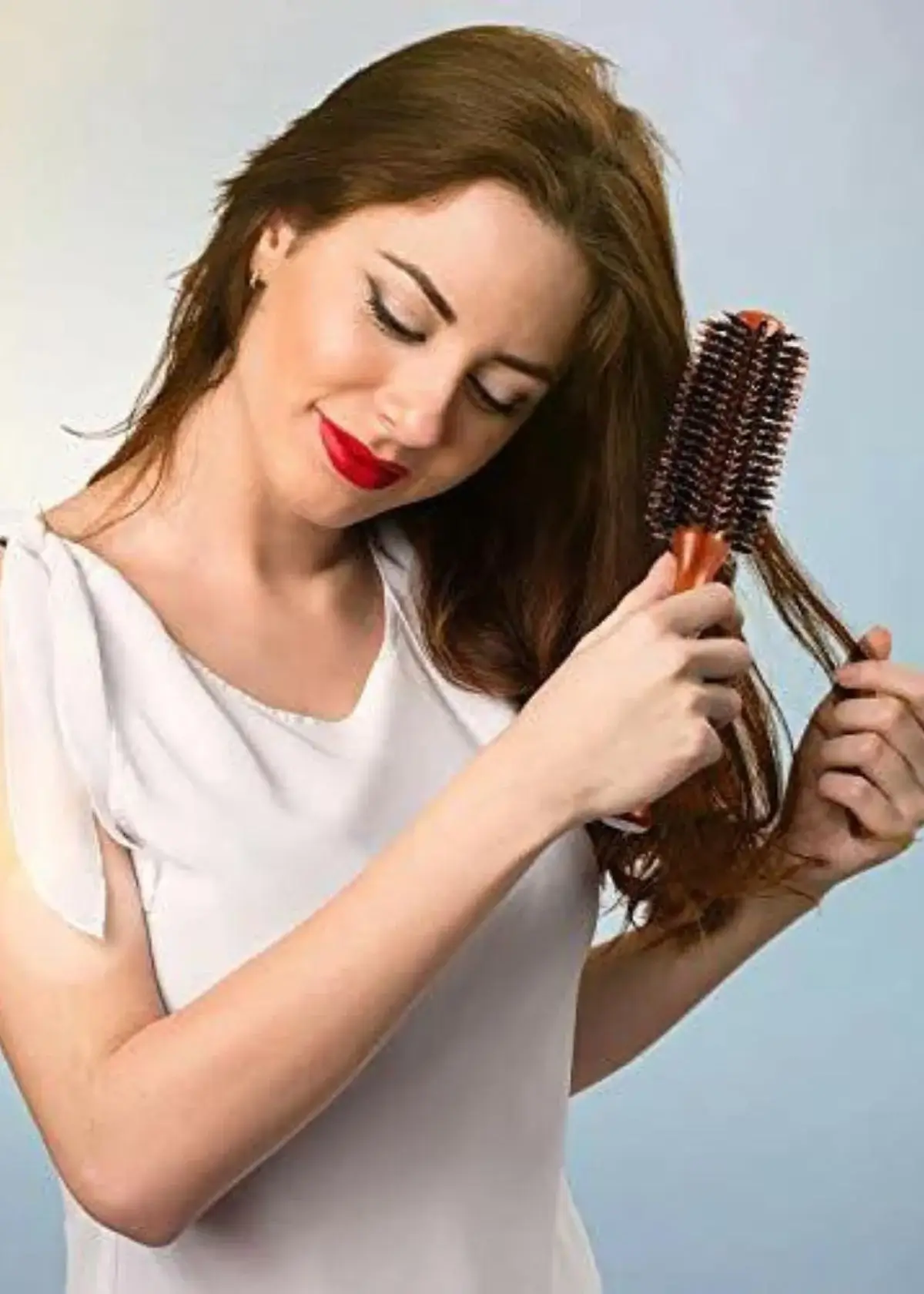Every woman dreams of having soft, luscious hair that she can show off with confidence. But the truth is that keeping your hair healthy and growing can be a challenge, especially with all the myths out there. One myth that has been circulating for years is that brushing your hair with a special brush can stimulate hair growth. But is it true? Can a brush really help your hair grow? In this blog post, we'll uncover the truth behind this myth and give you all the information you need to make informed choices regarding your hair.
The idea that brushing your hair can help it grow is not a new one. In fact, it's a concept that has been around for centuries. The theory behind this myth is that brushing your hair increases blood flow to the scalp, stimulating hair growth. However, there is no scientific evidence to support this theory. While brushing your hair can stimulate blood flow to the scalp, it's unlikely that this alone will lead to hair growth.
Although no evidence supports the idea that brushing your hair can stimulate hair growth, brushing your hair is still essential for healthy hair. Brushing your hair can distribute natural oils throughout your hair, which helps keep it hydrated and healthy. It can also help remove tangles and knots, leading to breakage if not dealt with.
When it comes to brushing your hair, it's essential to choose the right tools. A good quality brush can help to minimize breakage and damage to your hair. Look for a brush with natural bristles, such as a boar or horsehair. These materials are gentle on the hair and won't create static that can lead to tangles.
Another myth about brushing your hair is that you must brush it 100 times daily for healthy hair. This simply isn't true. Overbrushing your hair can actually lead to breakage and damage, mainly if you use the wrong brush or are too rough with your hair. Instead of focusing on the number of times you brush, focus on the quality of your brushing. Ensure you use a gentle touch and a good brush that won't damage your hair.
It's important to remember that while brushing your hair is an integral part of a healthy hair routine, it's unlikely that it will stimulate hair growth on its own. However, brushing your hair can help to keep your hair hydrated and healthy and can help to minimize damage and breakage. When it comes to choosing a brush, look for a high-quality brush with natural bristles for the best results. And remember, it's not about the number of times you brush, but the quality of your brushing that matters. Take care of your hair, and it will take care of you!
Dealing with hair loss can be a frustrating experience, and finding products that work can often be challenging. Fortunately, after conducting extensive research, we've found the best brush for hair loss. This brush is designed to help prevent hair loss and promote growth while providing a luxurious and gentle brushing experience. It's time to say goodbye to ineffective brushes and hello to your new favorite tool. Don't hesitate to click the link to discover the best brush for hair loss and revolutionize your haircare routine.
What role does proper nutrition play in addressing hair loss concerns?
Proper nutrition plays an indispensable role in addressing hair loss concerns. Hair, primarily composed of keratin protein, relies on a balanced diet for its growth and maintenance. Nutrients like biotin, vitamins A and D, and proteins are essential for the health of hair follicles. Biotin, for instance, is known to strengthen hair and improve its resilience. Vitamins A and D support sebum production, which moisturizes the scalp and prevents hair from becoming brittle and prone to breakage. Besides, proteins are the building blocks of hair, and an inadequate intake can lead to hair thinning and loss.

What are some common misconceptions about using brushes for hair loss?
Several misconceptions exist about using brushes for hair loss, and it's essential to dispel them. One prevalent fallacy is that vigorous brushing can stimulate hair growth. Excessive or aggressive brushing can be counterproductive, potentially damaging the hair shaft and follicles. Adopting a gentle brushing technique is essential to minimize friction and stress on the hair. Another misconception is that any brush will do the job. Different hair types and conditions require specific brushes. For instance, those dealing with hair loss should opt for brushes designed to be gentle on the scalp, with soft and flexible bristles.

What are the best ways to maintain the longevity of a hair loss prevention brush?
To extend the lifespan of your hair loss prevention brush and ensure it remains effective in your hair care routine, consider the following maintenance tips:
- Regular cleaning: Clean your brush regularly to remove trapped hair, oils, and product residues. This not only maintains brush hygiene but also ensures optimal performance.
- Proper storage: Store your brush in a dry, clean place to prevent the accumulation of dust, dirt, or moisture. A clean environment prolongs the life of the bristles and keeps the brush in good condition.
- Gentle brushing: Avoid applying excessive force during brushing, which can cause premature wear and tear on the bristles. A gentle and controlled brushing motion is critical to preserving the brush's effectiveness.

How do I select the appropriate brush for hair loss conditions like alopecia or thinning hair?
Selecting the right brush for hair loss conditions such as alopecia or thinning hair is crucial to minimize further damage and discomfort. When choosing a brush, look for one specifically designed for sensitive scalps and hair loss prevention. These brushes typically feature soft and flexible bristles that are gentle on the scalp, reducing the risk of aggravating hair loss. Also, consult a dermatologist or a hair care specialist for personalized recommendations.

How do I determine if I have a sensitive scalp and need a gentler brush for hair loss?
Identifying a sensitive scalp involves paying attention to how your scalp reacts during brushing and other hair care routines. It may indicate scalp sensitivity if you experience tenderness, discomfort, or irritation while brushing. Common signs include redness, itching, or a burning sensation. In such cases, it's advisable to switch to a brush labeled as "gentle" or "suitable for sensitive scalps." These brushes are designed to minimize friction and reduce the risk of exacerbating hair loss in individuals with sensitivity issues.
Should I be concerned about the shedding that can occur when using a hair loss prevention brush?
Shedding during brushing is a natural process and should not cause undue concern. It's a part of the hair growth cycle and removes loose or damaged hair, allowing new hair growth. However, it's essential to distinguish between normal shedding and excessive shedding. Normal shedding is characterized by a reasonable amount of hair coming out during brushing. If you notice a significant increase in hair loss during brushing, it may be a cause for concern.







